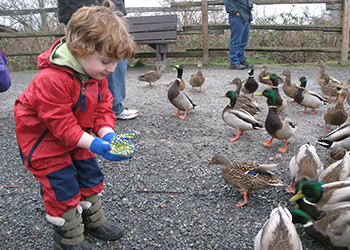
The issue
A well-educated, creative and adaptive workforce is key to the long-term success of the British Columbian economy. Early child development is a critical issue for business leaders, because the years before age six set in motion factors that will determine the quality of the future labour force. Currently, only 71% of BC children arrive at kindergarten meeting all of the developmental benchmarks they need to thrive, 29% are developmentally vulnerable.
The Business Council of British Columbia comissioned a study from The Human Early Learning Partnership (HELP) at the University of British Columbia. The study linked population level data to answer three questions:
- What does early vulnerability cost the BC economy?
- How does vulnerability at kindergarten influence graduation rates and educational achievement at Grade 12?
- How does vulnerability at kindergarten affect involvement in crime?
Data sources linked
- Early Development Instrument data on children kindergarten to grade 4
- Foundation Skills Assessment data on children grade 4 to grade 12
What did we learn?
- Reducing the kindergarten vulnerability rate to 10% would lead to a 34% increase in the number of children achieving the grades necessary for admission to BC’s top universities.
- A reduction in kindergarten vulnerability rates to 10% would result in a reduction in the BC crime rate of 31%.
- Reducing early vulnerability will yield enormous long-term gains for individuals, business and the economy in general, as well as for taxpayers and governments specifically. The study estimates that investing in
smart family policy now, would, over a 60-year period, generate a 20% increase in British Columbia’s GDP. In ‘today’s’ dollars, this would amount to $401 billion. - It is much more effective to to invest early in childhood than compensate later in life by increasing investment in final years of school, expanding post-secondary education, or in job skills training for adults.
"Access to unique data in BC allowed us to calculate what reductions in vulnerability levels would mean for high school completion rates and university eligibility."
Paul Kershaw, Human Early Learning Partnership, University of British Columbia
Making a difference
Recognising the importance of investing in early human capital, the Government of British Columbia’s (2009c) Strategic Plan commits to lowering the provicial rate of vulnerability to 15% by the fiscal year 2015/2016. The study provided the government with a detailed blueprint for policy reform and is informing and urging public debate about employment standards and worksharing to better meet the needs of families with young children.
